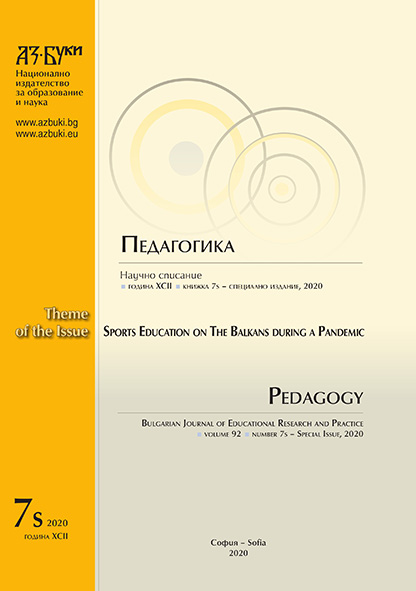The Psychological Impact of COVID-19 on University Lecturers in the Field оf Sports Education
The Psychological Impact of COVID-19 on University Lecturers in the Field of Sports Education
Author(s): Galina Domuschieva-Rogleva, Evelina SavchevaSubject(s): Social Sciences, Education, Vocational Education, Adult Education, Higher Education , State/Government and Education, Inclusive Education / Inclusion
Published by: Национално издателство за образование и наука „Аз-буки“
Keywords: perceived stress; post-traumatic stress symptoms; well-being
Summary/Abstract: The COVID-19 pandemic sets a precedent in modern history and is a threat to almost all countries in the world while challenging all existing systems. Efforts to reduce the spread of the COVID-19 virus among the younger and adult populations has prompted the widespread closing of schools, colleges, universities, and other educational institutions in many countries. The aim of this study is to establish the influence and interrelations between the psychological aspects of perceived stress, post-traumatic stress symptoms and wellbeing in university lecturers in the field of sports education with distance teaching during COVID-19. This online study was undertaken at the end of May 2020. Participants were 67 university lecturers in the field of sports education, between the ages of 25 – 70 years, divided into groups according to their gender, age, professional working experience, and academic positions. The research methods included: The Perceived Stress Scale (PS-1); Method for psychological assessment of post-traumatic stress symptoms; WHO-5, Wellbeing Index. There are significant differences depending on gender, age, professional working experience. Women experience stress stronger, have lower levels of well-being, and show more post traumatic symptoms, compared to men during the quarantine period. A statistically significant decrease of the level of well-being, and increase in the levels of perceived stress with age is found. None of the studied parameters showed statistically significant differences in the groups that were differentiated by academic positions. The experiencing of posttraumatic stress symptoms increased when there was an increase of the perceived stress. The well-being decreases when the levels of perceived stress are higher and the participants have experienced post-traumatic stress symptoms. These results may be seen as a starting point for future studies, examining personal and academic factors and the impacts of well-being on university lecturers.
Journal: Педагогика
- Issue Year: 92/2020
- Issue No: 7s
- Page Range: 163-175
- Page Count: 13
- Language: English
- Content File-PDF

